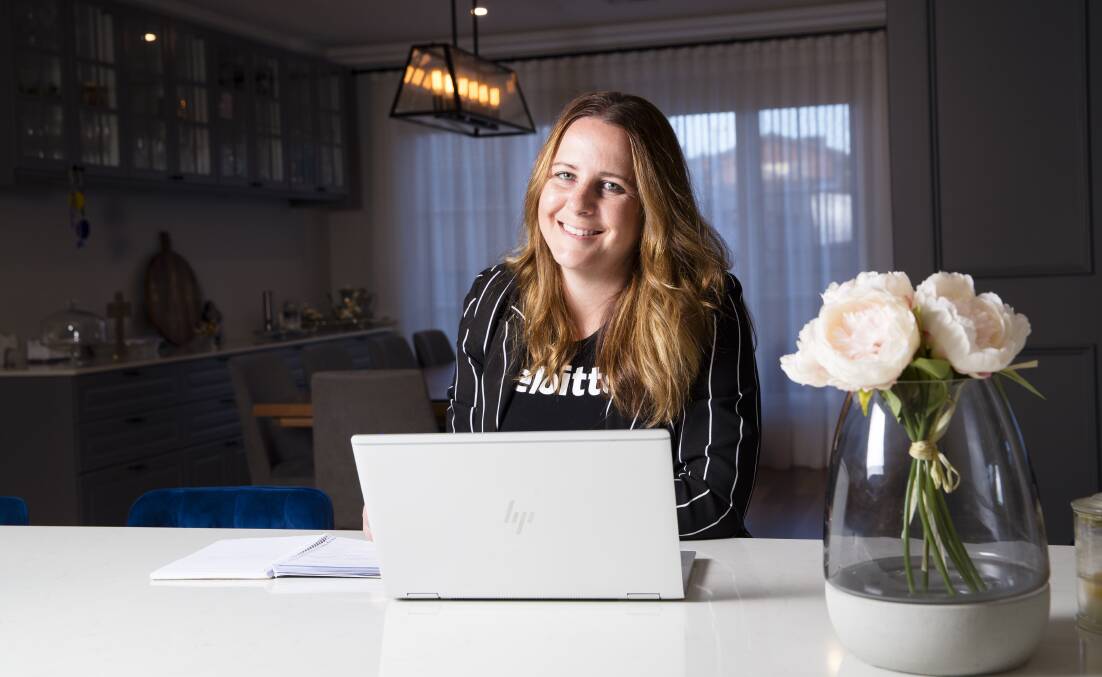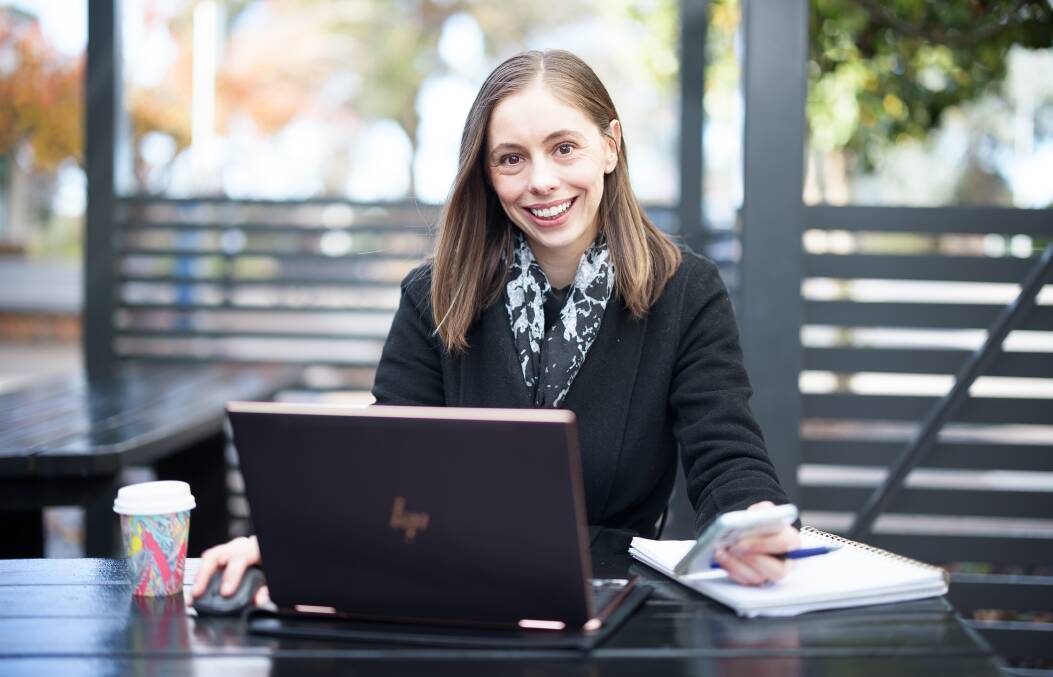
The number of Australians choosing to work from home at least some of the time has continued to grow, despite easing COVID restrictions that mean more people have been allowed to return to their offices.
The shift in the way people work amounts to a revolution but presents challenges to ensure women are not overlooked in the workplace and staff wellbeing is maintained, an expert says.
In April, 46.2 per cent of Australians worked from home one or more times a week, data released by the Australian Bureau of Statistics has shown.
The survey of household COVID-19 impacts showed 23.6 per cent of people with a job worked from home regularly before March 2020.
In February 2021, 40.9 per cent of people with a job worked from home. It dropped to 37.4 per cent in June 2021 and rose again to 44.4 per cent in February 2022.
Bryden Campbell, who established marketing agency Brand Rebellion earlier this year, said her pandemic work experience had given her the confidence to start her own firm without an office.
Ms Campbell said prospective staff were looking for greater flexibility, which was possible with technological improvements and a cultural shift to focus on output rather than hours worked.
"Working remotely, you're putting trust in your team to do the right thing. And it's about that trust [that] then empowers them to want to do the right thing. And they want to work on the thing," she said.
Ms Campbell said she was working out what a permanent base for her firm might look like, which was still an important part of attracting quality staff, but it was unlikely to be a traditional office.
"It has to be a creative space where people collaborate and do strategy sessions and campaign development. If they chose to want to sit there for the remainder of the day, then so be it, but it's not necessarily a forced thing to go and work there," she said.
Claire Shrewsbury, a public servant in the ACT's Chief Minister, Treasury and Economic Development Directorate, said working from home had been a novelty before the pandemic.
"I kind of wonder now how did we even make it work 9 to 5 in the office everyday," Ms Shrewsbury said.
Ms Shrewsbury said she never intended to go back to working five days in the office. The ACT government has long been committed to offering flexibility to its staff.
"I remember a role I had maybe six or seven years ago, where I myself needed to see the people in the office. So I think I've probably changed since those days, and the circumstances have changed too, where COVID forced us into this situation," she said.
"But it's actually much better, because it's much more empowering for staff to be able to get a clear direction on what needs to be done and just go ahead and do it."
Maria Mastoris, a director at Deloitte in Canberra, one of the so-called "big four" accounting firms, said she generally split her time equally between her home and the office.
"There's no sort of stigma around working from home more than being in the office or the other way around. It's just become the new normal," Ms Mastoris said.

Ms Mastoris said flexible work meant she could fit her other commitments around work, which had been supported by her employer.
"It's shown that productivity hasn't dropped and employees seem, I think, more happy and comfortable having the flexibility to work either in the office or at home," she said.
"I love to go into the office because I like to connect with people, connect with my team, but then I also like the comfort from working from home, in my own time, in my own space."
Dr Leonora Risse, a research fellow at the Women's Leadership Institute Australia and senior lecturer at Melbourne's RMIT University, said flexible working arrangements had allowed more people to participate in the workforce but could leave people behind, particularly women.
Dr Risse said it was important for managers to make sure their staff were being equally considered for promotions and not burning themselves out at home, sight unseen.
"When it comes to women's progression and pay ... flexible work could potentially work against women if they are disproportionately not in the office and that proximity bias determines those outcomes," she said.
"It doesn't have to be that way, if we have employers who are really cognisant and mindful about that."
Dr Rissen said the pandemic had hit the accelerator on flexible and remote work for knowledge workers, which had been a positive for participation.
But it was still a fluid area with conflicting experiences in different workplaces.
"I think we'll look back at this point in history and say this is a real revolution in the way we worked," she said.
The April COVID-19 impacts survey showed the number of people who attended bars and restaurants was now slightly higher than it was in March 2020, before the pandemic.
But there are still fewer Australians attending social gatherings. In April, 19.6 per cent of respondents said they attended a social gathering of 10 or more people, down from 27.3 per cent in March 2020.
The survey also showed 22.8 per cent of Australians had a household member who tested positive to coronavirus, up from 14 per cent in March.
Just under 39 per cent of Australians said they had a household member who had one or more symptoms of COVID-19 in April, up from 20.5 per cent in April and 17.8 per cent in February.
But fewer people are taking precautions, with 78 per cent of Australians reporting they wore a mask in the previous week, down from 98 per cent in February.
Just 75 per cent of people reported keeping their physical distance from others in April, down from 85 per cent in February.







